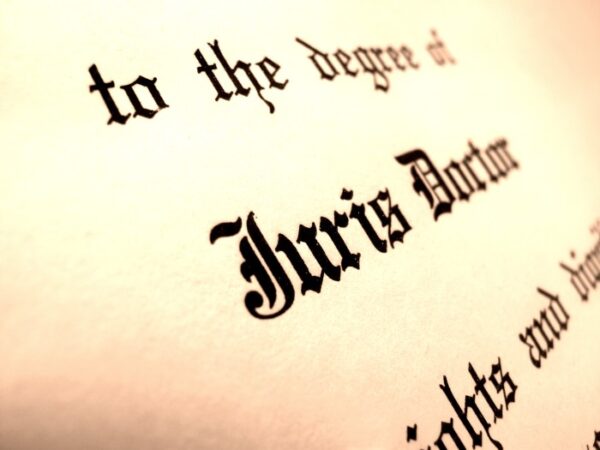
Criminal defense lawyer education requirements encompass a rigorous academic journey and a commitment to upholding ethical standards. Aspiring lawyers must navigate a specific educational path, including a demanding undergraduate degree followed by a Juris Doctor (JD) from an accredited law school. The Law School Admission Test (LSAT) plays a pivotal role in the admissions process, serving as a measure of a candidate’s readiness for the rigors of legal education. The curriculum of a law school program, including courses relevant to criminal defense practice, equips students with the foundational knowledge necessary to succeed in this challenging field.
Beyond the academic realm, aspiring criminal defense lawyers must also meet specific licensing requirements. Passing the bar exam is a critical step in demonstrating legal competency, and the character and fitness evaluation process ensures that individuals possess the ethical integrity necessary to practice law. Continuing legal education is essential for maintaining legal expertise and staying abreast of evolving legal landscapes.
Specialized Training and Experience

Beyond the foundational legal education, aspiring criminal defense lawyers can significantly enhance their skills and knowledge through specialized training and practical experience. These avenues equip them with the necessary tools and insights to navigate the complexities of criminal law and effectively represent their clients.
Specialized Training Programs
Specialized training programs offer a focused approach to specific areas within criminal defense law. These programs can provide valuable insights into emerging legal trends, specialized legal arguments, and the latest developments in criminal justice.
- Trial Advocacy Programs: These programs provide intensive training in courtroom skills, including examination techniques, jury selection, and closing arguments. Participants engage in mock trials and receive feedback from experienced attorneys.
- Advanced Criminal Procedure Programs: These programs delve into the intricacies of criminal procedure, covering topics like search and seizure, plea bargaining, and sentencing guidelines. This specialized knowledge equips attorneys to effectively challenge legal procedures and protect their clients’ rights.
- Specialized Defense Areas: Programs focusing on specific defense areas, such as DUI defense, white-collar crime, or juvenile justice, provide in-depth knowledge and strategies for handling complex cases.
Gaining Practical Experience
Practical experience is crucial for developing the skills and confidence needed to succeed as a criminal defense lawyer. Internships, clerkships, and pro bono work offer valuable opportunities to apply legal knowledge in real-world settings.
- Internships: Internships at law firms, public defender offices, or legal aid organizations provide hands-on experience assisting attorneys with case preparation, client interviews, and legal research.
- Clerkships: Clerkships with judges or prosecutors expose aspiring attorneys to the inner workings of the legal system, providing insights into courtroom procedures and judicial decision-making.
- Pro Bono Work: Pro bono work allows attorneys to represent clients who cannot afford legal representation, gaining valuable experience while serving the community.
Developing Courtroom Skills
Effective courtroom skills are essential for successful criminal defense representation. These skills encompass advocacy, negotiation, and legal research, enabling attorneys to present compelling arguments, navigate legal complexities, and protect their clients’ rights.
- Advocacy: Strong advocacy skills involve effectively presenting arguments, questioning witnesses, and persuasively advocating for the client’s position. This requires a deep understanding of the law, the ability to communicate clearly and concisely, and the confidence to stand up for the client’s interests.
- Negotiation: Negotiation skills are vital in criminal defense, as attorneys often engage in plea bargaining or settlement discussions with prosecutors. Successful negotiation requires strategic thinking, persuasive communication, and the ability to find mutually acceptable solutions.
- Legal Research: Thorough legal research is crucial for developing strong legal arguments and uncovering potential defenses. Attorneys must be proficient in using legal databases, interpreting case law, and applying legal principles to specific facts.
Networking and Building Relationships
Building a strong professional network is essential for success in criminal defense law. Networking with other attorneys, judges, and legal professionals provides access to valuable resources, insights, and support.
- Professional Organizations: Joining professional organizations, such as the National Association of Criminal Defense Lawyers (NACDL), provides opportunities to connect with colleagues, attend conferences, and stay informed about legal developments.
- Mentorship: Seeking mentorship from experienced criminal defense attorneys can provide guidance, support, and invaluable insights into the practice of law.
- Community Involvement: Participating in legal aid clinics or community outreach programs allows attorneys to build relationships with potential clients and other legal professionals.
Ethical Considerations: Criminal Defense Lawyer Education Requirements
Criminal defense lawyers are entrusted with a weighty responsibility: safeguarding the rights of individuals facing criminal charges. This responsibility necessitates a deep understanding of ethical principles and their application in legal practice. Ethical considerations guide every aspect of a criminal defense lawyer’s work, from client interactions to courtroom strategies.
Client Confidentiality
Client confidentiality is a cornerstone of the attorney-client relationship. This principle, enshrined in professional codes of conduct and supported by legal precedent, ensures that clients can freely communicate with their lawyers without fear of disclosure.
- Confidentiality is paramount: Criminal defense lawyers are obligated to maintain the confidentiality of all information shared by their clients, including sensitive personal details, case strategies, and even admissions of guilt.
- Exceptions are limited: There are rare exceptions to confidentiality, such as when a client reveals a plan to commit a future crime or when required by court order. However, these exceptions are strictly construed.
- Consequences of breach: Violating client confidentiality can result in severe consequences, including disciplinary action by the bar, civil liability, and even criminal charges.
Zealous Advocacy
Criminal defense lawyers are expected to advocate zealously for their clients within the bounds of the law. This means employing all legal and ethical strategies to achieve the best possible outcome for their clients, even if they believe their client is guilty.
- Duty to the client: The duty of zealous advocacy requires lawyers to vigorously challenge the prosecution’s case, present mitigating evidence, and negotiate favorable plea bargains on behalf of their clients.
- Ethical boundaries: Zealous advocacy does not mean resorting to unethical tactics or misleading the court. Lawyers must remain truthful and honest in their representations, even when advocating for their clients’ interests.
- Balancing client interests with ethical obligations: Criminal defense lawyers must navigate a delicate balance between zealously representing their clients and upholding the ethical standards of the legal profession.
Professional Codes of Conduct
Professional codes of conduct, such as the American Bar Association’s Model Rules of Professional Conduct, provide guidance on ethical obligations and standards for lawyers. These codes establish clear rules and principles that govern the legal profession.
- Guiding principles: Codes of conduct address a wide range of ethical issues, including confidentiality, conflicts of interest, honesty, and professional competence. They serve as a framework for ethical decision-making in legal practice.
- Disciplinary enforcement: Violations of professional codes can lead to disciplinary action by the bar, ranging from reprimands to disbarment.
- Ethical education: Continuing legal education programs often focus on ethical issues, helping lawyers stay informed about the latest developments and best practices in ethical conduct.
Ethical Dilemmas
Criminal defense lawyers often encounter ethical dilemmas that require careful consideration and judgment. These dilemmas can arise from conflicting client interests, the need to balance zealous advocacy with ethical obligations, or the potential for personal bias to influence their actions.
- Conflicting client interests: A lawyer may represent multiple clients whose interests are at odds with each other. In such cases, the lawyer must carefully assess whether they can represent all clients fairly and ethically.
- Duty to the court: Lawyers have a duty to the court to ensure the fair administration of justice. This duty can sometimes conflict with their duty to their clients, creating ethical dilemmas.
- Personal bias: Lawyers must be aware of their own biases and ensure that they do not influence their legal judgments or actions. For example, a lawyer’s personal views on a particular crime may impact their representation of a client accused of that crime.
Ethical Best Practices, Criminal defense lawyer education requirements
Criminal defense lawyers can promote ethical conduct by adhering to best practices, such as:
- Maintaining clear and open communication with clients: This helps to establish trust and ensure that clients understand their rights and options.
- Thoroughly researching and understanding the law: This ensures that lawyers can provide competent and ethical legal advice.
- Avoiding conflicts of interest: Lawyers should carefully screen potential clients to avoid representing clients whose interests conflict with each other or with their own personal interests.
- Being honest and truthful in all dealings with the court, opposing counsel, and clients: This fosters trust and integrity within the legal system.
- Seeking guidance from experienced colleagues or ethical experts when facing difficult ethical dilemmas: This can help lawyers navigate complex situations and make informed decisions.
Professional Development

A successful criminal defense lawyer is a lifelong learner, constantly adapting to changes in the legal landscape and refining their skills. Professional development is essential for staying sharp, informed, and effective in representing clients.
Resources for Professional Development
Professional development resources offer valuable opportunities to enhance knowledge and skills in criminal defense law.
- Professional Organizations: Organizations like the National Association of Criminal Defense Lawyers (NACDL) and the American Bar Association (ABA) provide access to resources, publications, and networking opportunities for criminal defense lawyers. These organizations offer valuable insights into legal trends, ethical considerations, and best practices in criminal defense.
- Continuing Education Programs: Many law schools and professional organizations offer continuing education programs specifically designed for criminal defense lawyers. These programs provide in-depth training on specific areas of criminal law, such as trial advocacy, sentencing, or post-conviction relief. They also offer opportunities to earn Continuing Legal Education (CLE) credits, which are required by most jurisdictions for lawyers to maintain their licenses.
- Legal Journals: Staying abreast of legal developments and changes in criminal law is crucial for criminal defense lawyers. Legal journals, such as the “Criminal Justice” journal and the “American Criminal Law Review,” publish scholarly articles, case summaries, and commentary on current legal issues. They provide valuable insights into legal trends, emerging case law, and legislative developments.
Importance of Staying Updated
The legal landscape is constantly evolving, with new laws, court decisions, and procedural changes affecting criminal defense practice. Staying updated on these developments is crucial for effective legal representation.
- New Laws and Legislation: New laws and legislative changes can significantly impact criminal defense strategies. For example, changes to sentencing guidelines, the introduction of new criminal offenses, or amendments to procedural rules require lawyers to stay informed and adapt their approach.
- Court Decisions: Court decisions, particularly those from higher courts, can establish new legal precedents and interpret existing laws. Lawyers need to be aware of these decisions to understand how they might affect their cases and to anticipate potential challenges or opportunities.
- Emerging Legal Issues: The legal landscape is constantly evolving, and new legal issues are emerging. For example, the rise of cybercrime and digital evidence presents unique challenges for criminal defense lawyers. Staying updated on these emerging issues is essential for providing effective representation.
Benefits of Attending Legal Conferences and Workshops
Attending legal conferences and workshops offers a valuable opportunity for professional development and networking.
- Skill Enhancement: Conferences and workshops often feature presentations and workshops by leading experts in specific areas of criminal law. This provides opportunities to learn new skills, refine existing techniques, and gain insights into best practices.
- Networking Opportunities: Legal conferences provide a platform for networking with other lawyers, judges, prosecutors, and legal professionals. These connections can be invaluable for building relationships, sharing information, and collaborating on cases.
- Access to Latest Information: Conferences and workshops often cover the latest legal developments, case law, and trends. This provides lawyers with up-to-date information on the most relevant legal issues and helps them stay ahead of the curve.
Mentorship and Peer-to-Peer Learning
Mentorship and peer-to-peer learning play a crucial role in professional development for criminal defense lawyers.
- Mentorship: Experienced lawyers can provide invaluable guidance and support to newer attorneys. Mentors can offer advice on legal strategies, case management, client communication, and professional development.
- Peer-to-Peer Learning: Learning from colleagues can provide valuable insights into different approaches to legal practice, case strategies, and ethical considerations. Peer-to-peer learning can also foster a sense of community and support within the legal profession.
Closing Notes

The journey to becoming a successful criminal defense lawyer demands a deep understanding of the law, a commitment to ethical practice, and a dedication to lifelong learning. Through a combination of rigorous education, licensing requirements, specialized training, and ongoing professional development, aspiring lawyers can equip themselves with the knowledge, skills, and ethical foundation necessary to advocate effectively for their clients and uphold the principles of justice.
Questions and Answers
What are some common undergraduate majors for aspiring criminal defense lawyers?
While there is no specific undergraduate major required, common choices include political science, history, criminal justice, psychology, and philosophy, as these fields provide a strong foundation in critical thinking, analytical skills, and an understanding of human behavior.
What are some specialized training programs in criminal defense law?
Specialized training programs can include certificate programs in criminal defense law, trial advocacy courses, and workshops on specific areas of criminal law, such as DUI defense or white-collar crime.
How important is networking for criminal defense lawyers?
Networking is crucial for building relationships with other legal professionals, potential clients, and mentors. Attending legal conferences, joining professional organizations, and participating in bar association events can provide valuable networking opportunities.
